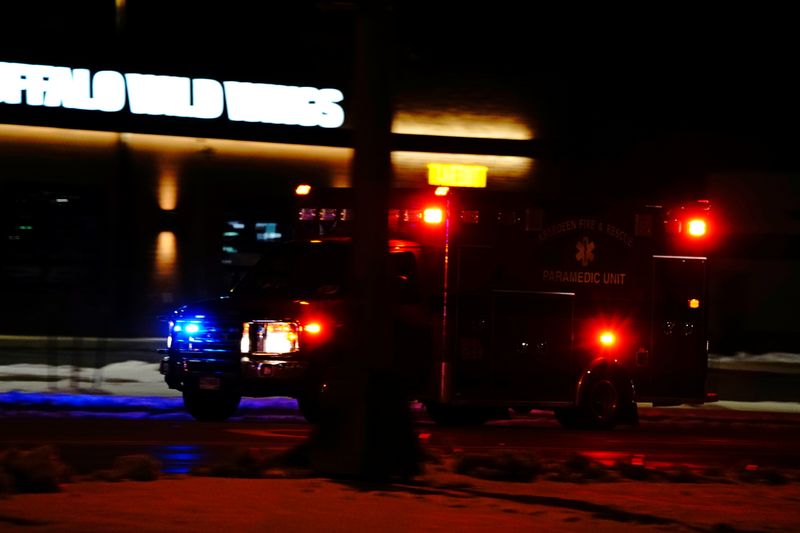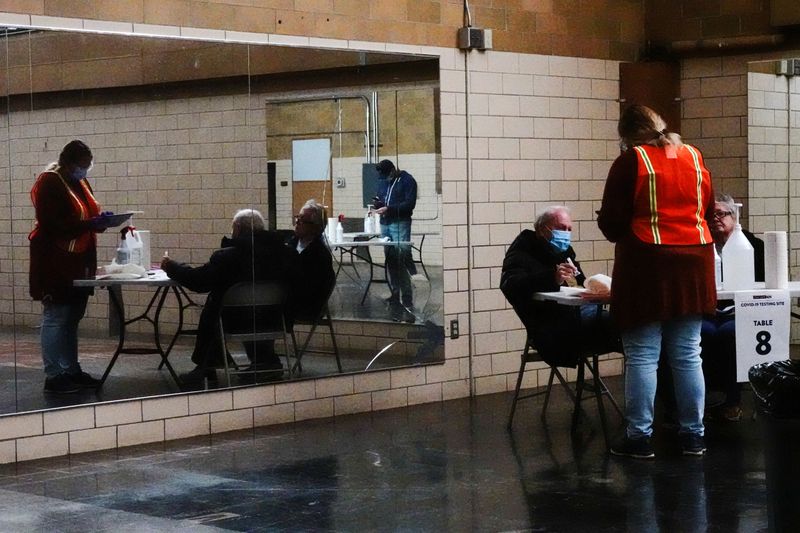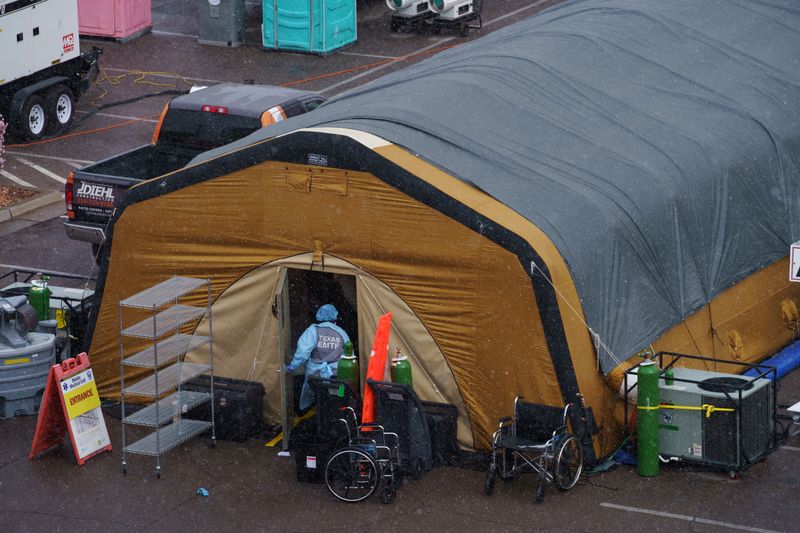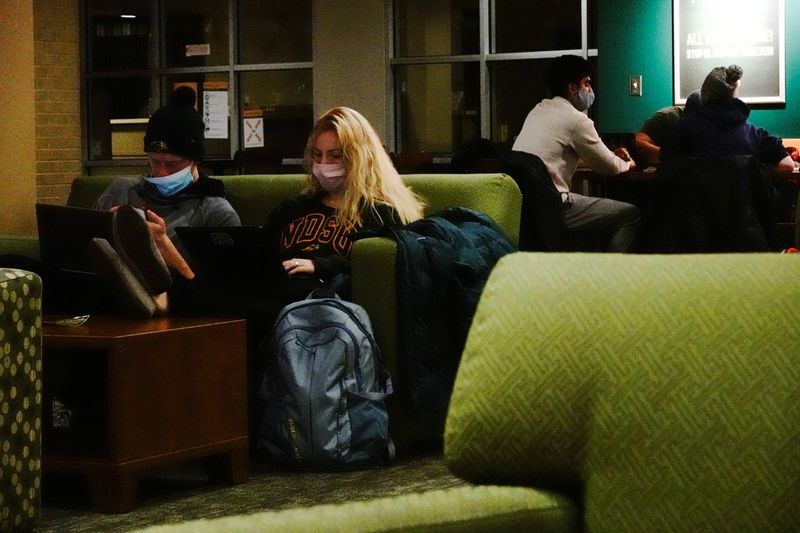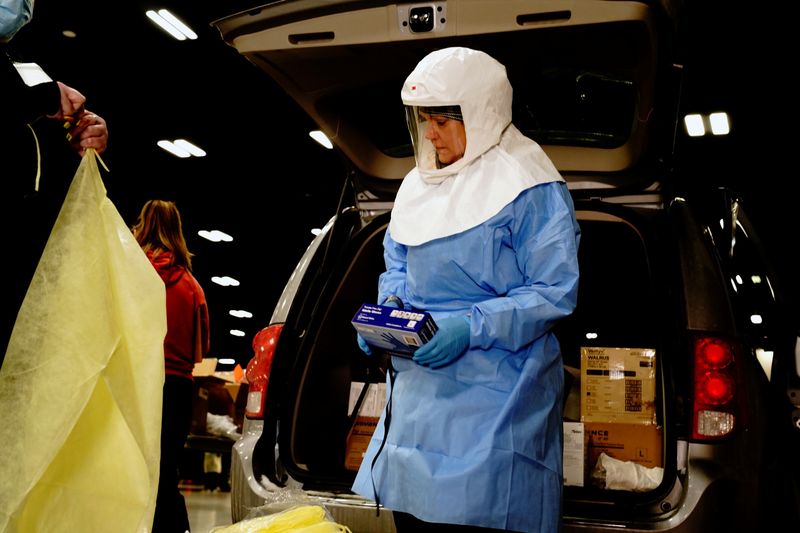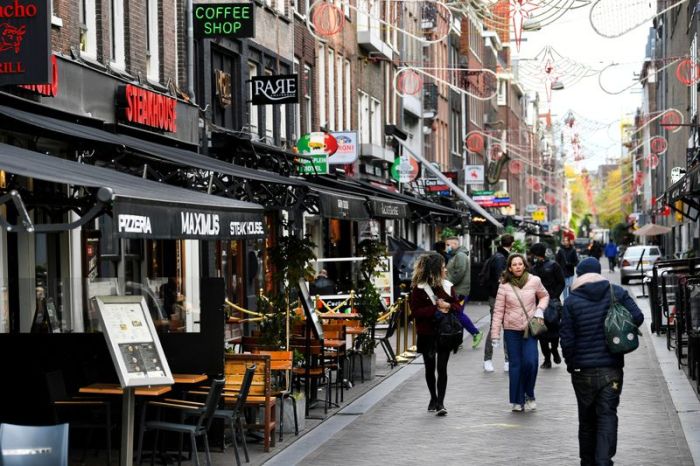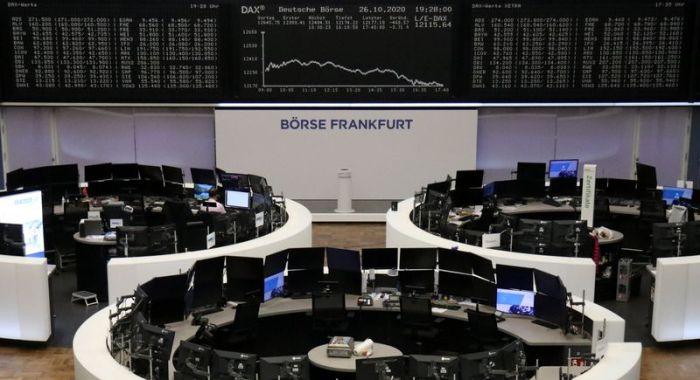CHICAGO (Reuters) – Nearly half a million people have contracted COVID-19 in the United States over the last seven days, according to a Reuters tally, as new cases and hospitalizations set records in the Midwest.
Coronavirus hot spots include Illinois, which reported 31,000 new infections over the past week, and two states expected to be key in the U.S. presidential election on Nov. 3: Pennsylvania and Wisconsin.
“We must take significant and collective actions,” Andrea Palm of the Wisconsin Department of Health Services told a news conference, adding that contact tracers were overwhelmed and hospitals may face staffing shortages. “This is going to get worse before it gets better.”
Wisconsin broke one-day state records in both cases and deaths; state officials told residents to stay home, wear masks and cancel social gatherings.
Alaska set a statewide record for single-day positive tests over the weekend, and some of the hardest-hit parts of the state were rural communities with mostly Native populations.
Nationwide more than 5,600 people died from the virus nationwide in the last week, with hospitalizations rising 13%, a Reuters analysis showed.
U.S. President Donald Trump, facing a tough re-election battle on Nov. 3, on Tuesday reiterated his claim that the country is “rounding the turn” in the pandemic that has killed more than 226,000 people since erupting in March.
“We did the ventilators and now we’re doing all of the equipment and now we’re doing vaccines, we’re doing therapeutics. We’ve done a great job, and people are starting to see,” Trump told reporters at the White House.
ILLINOIS CRACKS DOWN
Illinois Governor J.B. Pritzker imposed fresh rounds of restrictions in seven of 11 regions, most recently in Chicago
Beginning on Friday, indoor dining in bars and restaurants will be suspended in the Windy City and gatherings will be limited to 25 people. Business owners in parts of Illinois have pushed back against restrictions, citing financial damage.
Other states have walked back reopening plans to curb the spread of the virus as cooler weather sets in across most of the nation.
Idaho Governor Brad Little on Monday prohibited indoor gatherings of more than 50 people and capped them outdoors at 25% capacity.
Health experts believe the virus is surging because of private social gatherings, colder temperatures driving people inside, and Americans’ fatigue with COVID-19 restrictions that have now been in place for more than six months.
Beyond the Midwest, the Texas city of El Paso is also facing a surge in cases that is overwhelming local hospitals, with officials setting up an alternate care facility to help relieve medical centers.
“We are seeing all sorts of patients. The narrative historically has been the above-65, those with multiple co-morbidities. But we’re seeing 20-year-olds. We’re seeing 30-year-olds, 40-year-olds,” Dr. Ogechika Alozie, an infectious disease specialist in El Paso, told Reuters.
Denver Mayor Michael Hancock announced he was reinstating some coronavirus rules to combat what city officials described as a “dramatic rise” in COVID-19 cases and hospitalizations.
Restaurants, retail businesses and offices will have their 50% capacity slashed in half, the mayor said, while events will be capped at indoor 25 people indoors and 75 outdoors.
Colorado reported a record one-day increase in cases on Monday and hospitalizations have risen 60% in the last two weeks to 571. The percentage of positive tests has more than doubled this month to over 7%. However, the number of those hospitalized in the state is far below April’s record 1,000.
(Reporting by Lisa Shumaker and Brendan O’Brien in Chicago, Maria Caspani in New York; additional reporting by Nathan Frandino in El Paso, Peter Szekely in New York, Doina Chiacu and Steve Holland in Washington, Yereth Rosen in Anchorage and Dan Whitcomb in Los Angeles; Editing by Rosalba O’Brien, Emelia Sithole-Matarise, Marguerita Choy and Gerry Doyle)

